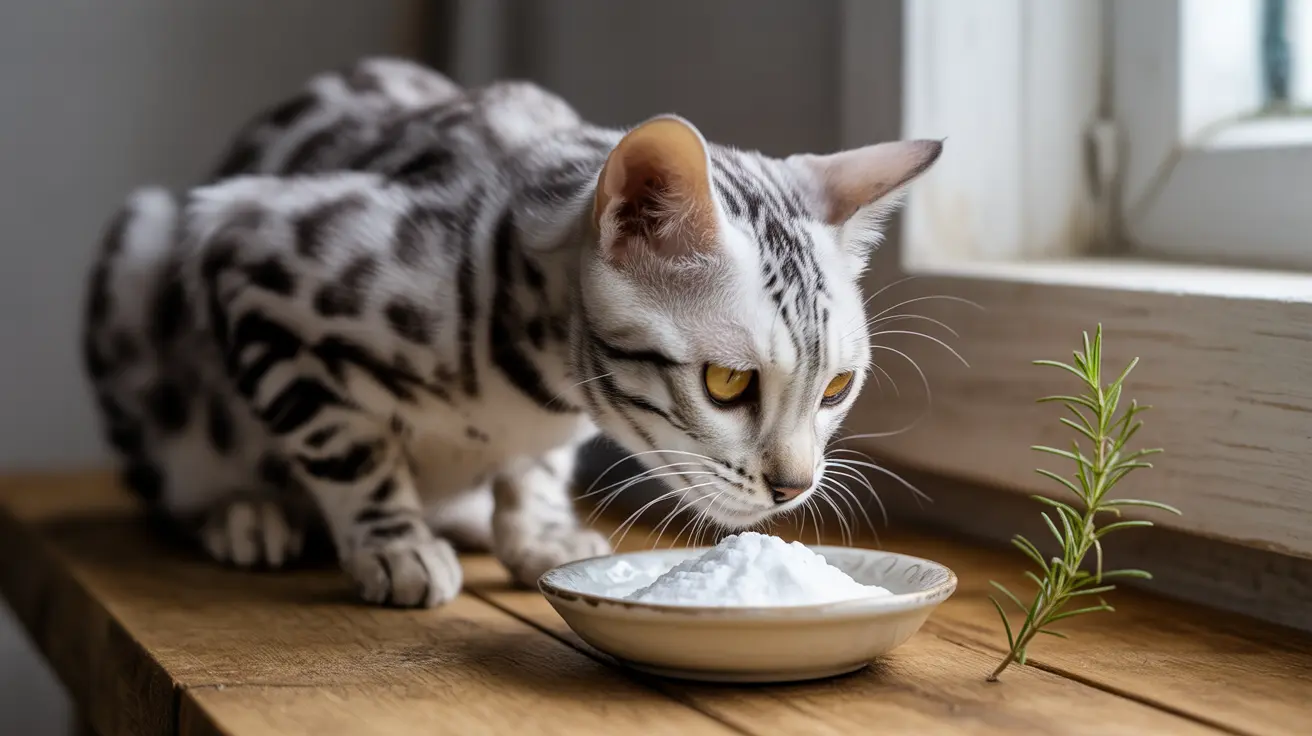Understanding the Baking Soda and Fleas Myth
If you're battling a flea infestation on your cat, you may have come across suggestions to use baking soda as a natural remedy. While the idea of an affordable, readily available solution is appealing, it's crucial to understand the facts about using baking soda for fleas on cats.
Despite its popularity as a home remedy, scientific evidence does not support baking soda as an effective or safe method for flea control in cats. Let's explore why this common household item should not be your go-to solution for flea problems.
The Truth About Baking Soda's Effectiveness
The theory behind using baking soda for flea control suggests that it dehydrates flea eggs and larvae. However, research shows this effect is minimal at best and completely ineffective at worst. Adult fleas are particularly resistant to baking soda, making it an unreliable treatment option.
Even if baking soda could affect some flea life stages, it cannot address the complete flea life cycle, which is essential for effective pest control. Professional veterinarians consistently warn against relying on this method.
Health Risks to Cats
More concerning than its ineffectiveness are the potential health risks baking soda poses to cats. When applied to their fur, cats will naturally groom themselves and ingest the substance, which can lead to serious health complications, including:
- Digestive upset and vomiting
- Electrolyte imbalances
- Metabolic alkalosis
- Muscle spasms
- Lethargy and weakness
Proven Alternatives for Flea Control
Instead of risking your cat's health with baking soda, veterinarians recommend several proven methods for flea control:
Veterinary-Approved Treatments
- Prescription topical treatments
- Oral flea medications
- Professional-grade flea shampoos
Environmental Management
- Regular vacuuming of carpets and furniture
- Washing pet bedding in hot water
- Professional pest control services when needed
Comprehensive Flea Prevention Strategy
The most effective approach to flea control combines multiple strategies:
- Regular use of veterinary-approved flea preventatives
- Thorough home cleaning and maintenance
- Consistent monitoring of your cat for signs of fleas
- Professional guidance from your veterinarian
Frequently Asked Questions
Does baking soda really kill fleas on cats, and is it an effective flea treatment?
No, baking soda is not proven to effectively kill fleas on cats. Scientific evidence does not support its use as a flea treatment, and veterinarians do not recommend it.
Can using baking soda on my cat cause any health risks or side effects?
Yes, baking soda can be dangerous for cats. When ingested through grooming, it can cause vomiting, electrolyte imbalances, and potentially serious metabolic issues.
What are safer and more effective alternatives to baking soda for controlling fleas on cats?
Veterinary-approved flea treatments, including topical applications and oral medications, are safe and effective alternatives. These should be combined with regular home cleaning and environmental management.
How should I properly clean my home to help eliminate fleas if baking soda isn't effective?
Regular vacuuming, washing pet bedding in hot water, and treating all household pets with appropriate flea medications are essential steps. Consider professional pest control for severe infestations.
Why don't veterinarians recommend baking soda for flea prevention or treatment on cats?
Veterinarians don't recommend baking soda because it lacks scientific evidence of effectiveness and poses potential health risks to cats. They prefer proven, safe, and regulated flea control products.
Conclusion
While the appeal of using baking soda as a natural flea treatment is understandable, it's neither safe nor effective for your cat. Instead, work with your veterinarian to develop a comprehensive flea control strategy using proven methods and products specifically designed for feline safety and optimal pest control effectiveness.






